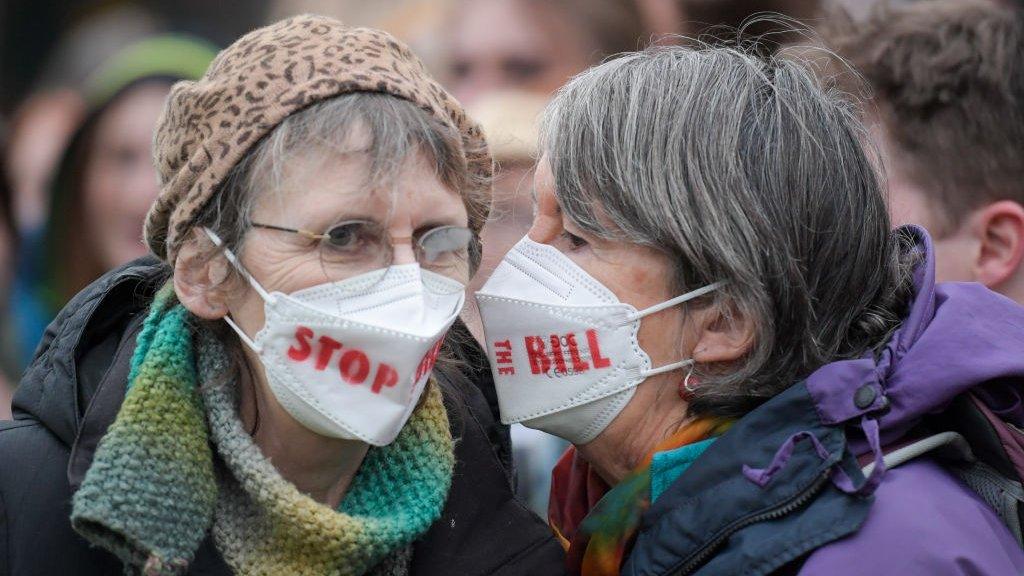The week ahead in Parliament
- Published
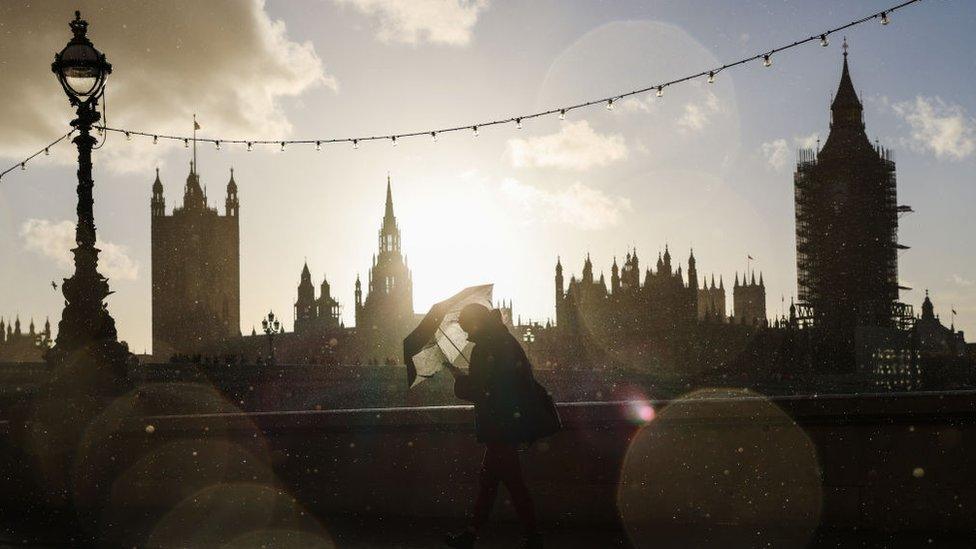
It's probably just as well for the government's business managers that this is a truncated Commons week, with many MPs already released for a half-term break away from Westminster.
They will be a long time recovering from their parliamentary meltdown over the Owen Paterson affair, with its mishandled wheeze, mid-air reverse ferrets and the abrupt departure of the man the whole thing was supposed to protect.
There's an old whip's adage to the effect that after a Commons rebellion, the rebels usually sleep soundly in their beds; the people the whips have to worry about are those who were frogmarched through the division lobbies against their better judgement - especially when they're made to look like foolish by an abrupt change in the party line.
That's where many loyal Conservative backbenchers now find themselves, blasted on social media for a vote in a cause that was then surrendered.
We may see some effects in the coming weeks, when the government will be seeking to reverse Lords amendments to a variety of bills, some in popular causes, although there is supposed to be agreement, now, on the sewage discharge issue in the Environment Bill, which caused a social media storm a couple of weeks ago.
Watch out for the moment when the government wants to reverse the Lords amendment partially restoring the "triple lock" on the value of the state pension.
Here's my rundown of the week ahead:
Monday 8 November
The Commons opens (14:30) with Work and Pensions questions, after which there may be the usual Monday collection of urgent questions and statements.
The main business is to consider the latest batch of Lords amendments to the Environment Bill.
There seems to be agreement around the Duke of Wellington's amendment to impose tougher requirements on water companies to limit sewage discharges into watercourses, and ministers have promised an amendment meeting his demands.
Negotiations on that continue. But on another Lords amendment, Commons committee approval of appointments to the board of the new watchdog body, the Office for Environmental Protection, and limiting the guidance the government can give it on how it uses its powers, there may still be more to-ing and fro-ing to come.
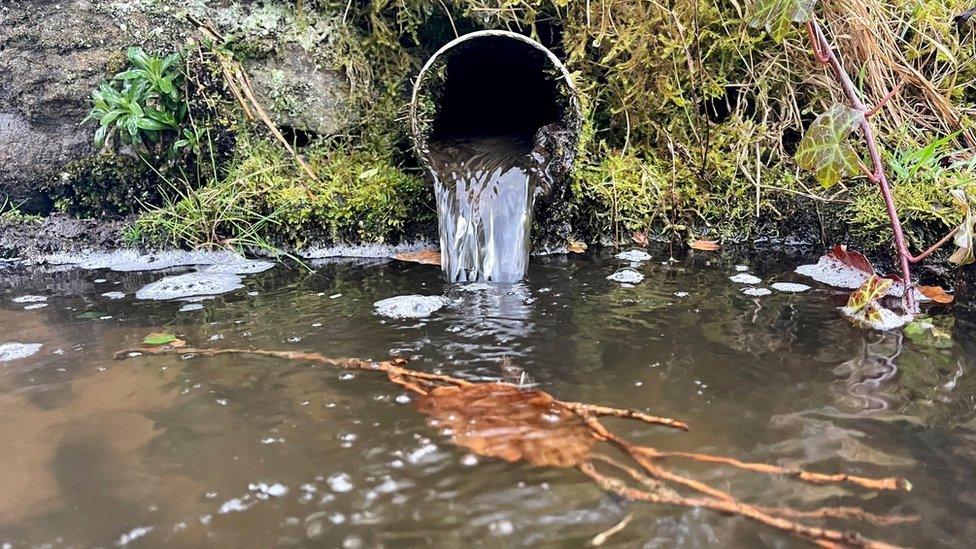
Campaigners are concerned about the impact of sewage discharges on many rivers
That's followed by consideration of Lords amendments to another bill, the Telecommunications (Security) Bill, where peers added a two new clauses.
The first requires the government to report to Parliament on the impact of its diversification of telecommunications supply chains strategy on network security and services, and the second requires the government to review the UK's security arrangements with a telecommunications company, if that company is banned from operating in another "Five Eyes" country.
The rest of the day was to be devoted to a Labour Opposition Day motion - but will now be used for the three-hour emergency debate secured by Lib Dem Chief Whip Wendy Chamberlain (she got in ahead of Labour and the SNP) on the wider ramifications of the Paterson affair.
There's some talk that Sir Keir Starmer, returning from his bout with Covid-19, might lead for Labour.
In Westminster Hall, the Petitions Committee has scheduled a debate on an e-petition calling on the government to limit the sale and use of fireworks to organisers of licensed displays.
They will then debate a petition calling on the government to make it a legal requirement for nightclubs to "thoroughly search guests on entry" to ensure public safety.
On the Committee Corridor, new "Levelling Up" Secretary Michael Gove will be questioned by the Housing (16:00) on issues including the sustainability of local government funding after last week's Spending Review, building safety and remediation, levelling up and planning reform, as well as changes to the department's remit since his appointment.
Treasury (15:15) continues its look at the Autumn Budget and Spending Review with a panel of heavyweight experts, headed by Paul Johnson of the Institute for Fiscal Studies (IFS).
Work and Pensions (16:15) hears from Pensions Minister Guy Opperman about accessing pension savings protecting savers, five years on from changes known as "pension freedoms".
The session will be an opportunity for MPs to question the minister about issues raised during their inquiry so far, including the role of the government in ensuring savers make good decisions when accessing their pension savings, the availability of pension advice and the development of pension "dashboards".
And Procedure (16:15) looks at the issues around MPs voting by proxy with two senior Commons figures, the Conservative Sir Bernard Jenkin and the Mother of the House, Harriet Harman.
In the Lords (14:30), questions cover the licensing arrangements for new cancer drugs, designating cash machines as critical national infrastructure and the recruitment of au pairs from the EU.
There's a brief third reading for the Social Security (Uprating of Benefits) Bill, and then peers continue poring over the detail of the Police, Crime, Sentencing and Courts Bill, in their sixth day of Committee scrutiny.
The focus will include clauses on gypsies and travellers, driving and transport offences, cautions, and custodial sentences.
Tuesday 9 November
The Commons opens (11:30) with Justice questions.
After this, Conservative MP Tim Loughton will presents a ten-minute rule bill on formal government recognition of the Armenian genocide of 1915-16.
He's chairman of the All-Party Group on Armenia, and argues the move would be consistent with accusations of Chinese genocide against the Uighurs and Tibetans.
He also notes that the Biden administration has just taken the initiative and recognised the Armenian Genocide formally too.
I'm not quite sure whether the debate announced by the government on the Owen Paterson case, in the brief interval between it reversing their position, and Mr Paterson resigning, will now go ahead - some expect it to be cancelled, while others think it will morph into a discussion about some method of reforming the standards system.
The main debates are on subjects chosen by the Backbench Business Committee.
First up is a debate on giving every baby the best start in life - where the key figure will be the former cabinet minister Andrea Leadsom, who has long campaigned to get more focus on helping children and parents in the crucial early years, and who recently welcomed funding provided in the Budget.
The second debate is on school-based counselling services - Labour former chief whip Nick Brown has been pressing for counsellors to be placed in every school in England.
Tory MP Robert Halfon, who chairs the Education Committee, has also highlighted his concerns about the mental health impact of school closures (and will doubtless plug his ten-minute rule bill to create a "triple lock" mechanism requiring parliamentary approval of future school closures).
In the adjournment debate on fire safety in retirement communities, Labour's Kevan Jones will highlight concerns about who pays for improvement works for fire safety in purpose-built communities, following a case in his constituency.
After that, the Commons takes a brief half-term break, returning on Monday 15 November.
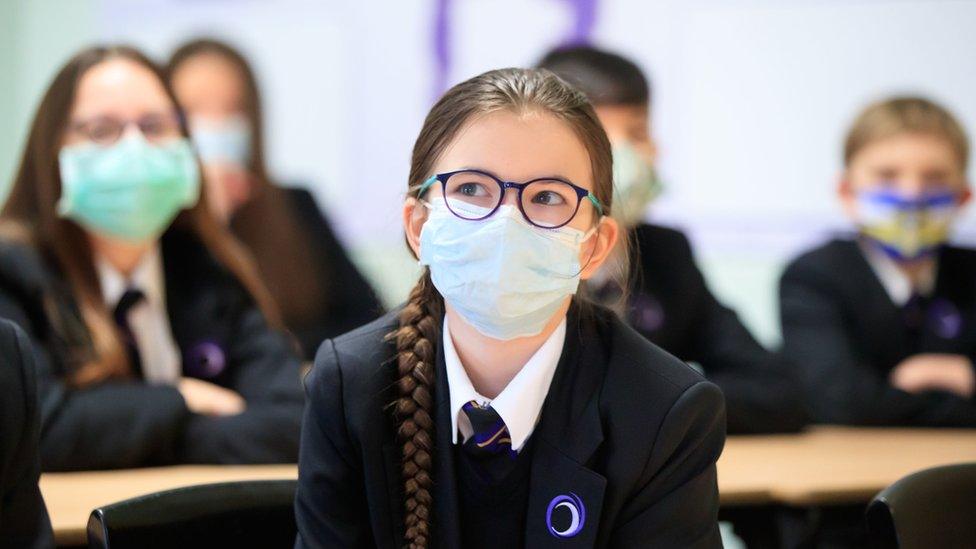
Robert Halfon wants to give MPs a vote over any future school closures due to Covid
In Westminster Hall, debates include the Conservative Andrew Bowie calling for a national memorial to the wartime Photographic Reconnaissance Unit (09:30), and the Conservative Virginia Crosbie looking at the funding mechanism for nuclear power (16:30).
Committee action includes Health and Social Care (10:00) continuing its look at cancer services with expert witnesses.
Environment, Food and Rural Affairs (14:30) will question the Bank of England's deputy governor for monetary policy and other leading economists about labour shortages in the food and farming sector - and there's also what promises to be a rather interesting meeting of the Commons Standards Committee, alas in private.
In the Lords (14:30), questions to ministers range across transgender inclusion in sport, converting the Sarah Everard inquiry into a full-scale statutory inquiry, and extending the storage limit for frozen gametes and embryos.
Then peers will react to whatever the Commons has done with their amendments to the Environment Bill - with some expectation of another round of ping-pong over the role and remit of the Office for Environmental Protection.
Then, peers turn to their report stage consideration of the Professional Qualifications Bill, where ministers have now agreed to amend the bill after pressure from Labour on a number of detailed issues around the government's post-Brexit regime for recognising foreign qualifications.
Finally, there's a Labour regret motion against the dissolution of Public Health England, but it is not expected to be pushed to a vote.
Wednesday 10 November
The Lords start earlier than usual for a Wednesday (11:00), with one of their long-running internal rows surfacing at questions, when Labour's Lord Grocott will ask about the continuation of by-elections to top up the quota of 92 hereditary peers in the Upper House - a system he has long wanted abolished.
And there's also a question about the increase in the value of clinical negligence claims.
Next, peers turn to the detail of the independent peer and Big Issue founder Lord Bird's Wellbeing of Future Generations Bill, which seeks to hardwire consideration of long-term issues into government policy-making.
Finally, they continue their yomp through the detail of the Police, Crime, Sentencing and Courts Bill - with the seventh of a planned eight days of committee consideration, with the focus on the clauses dealing with cautions, custodial sentences and community sentences.
At the close of business, peers too will take a half-term break, returning on Monday 15th.
Related topics
- Published5 November 2021
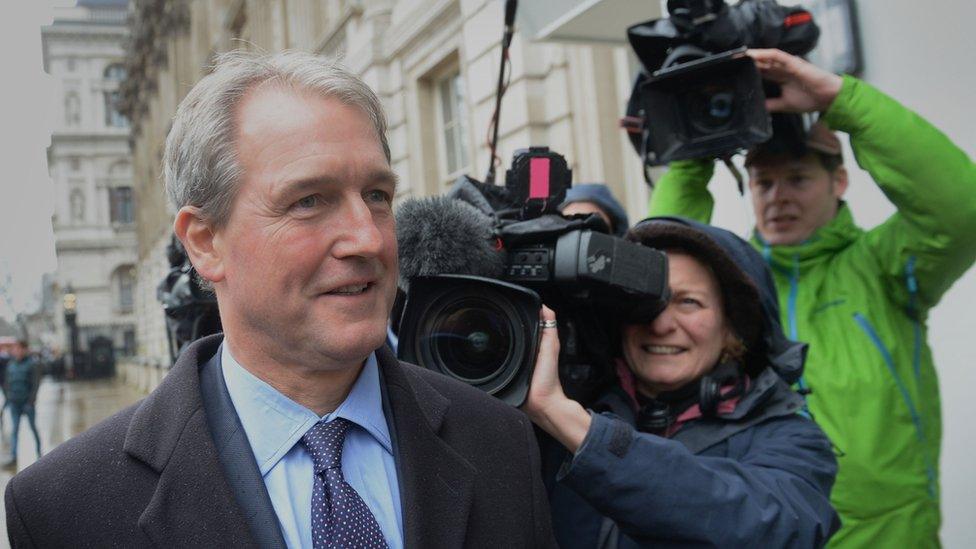
- Published4 November 2021
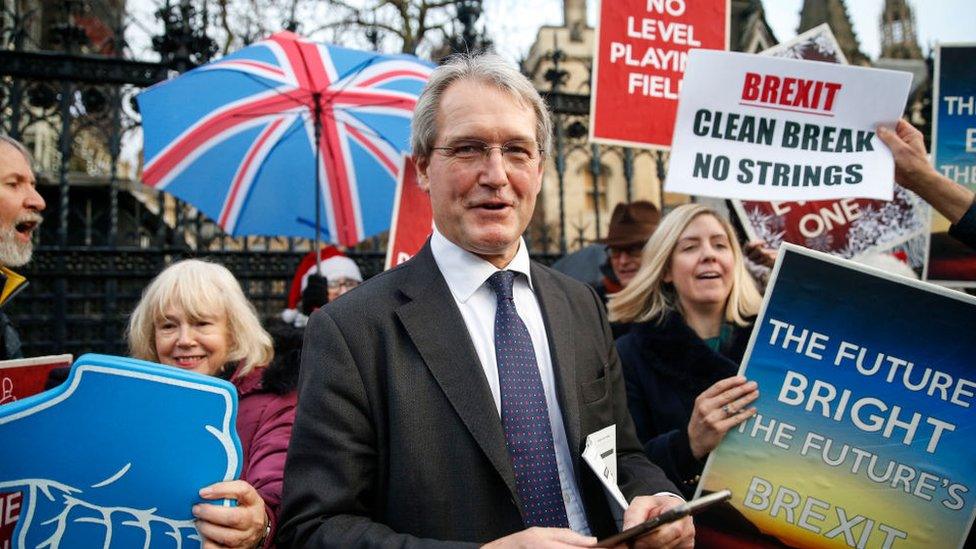
- Published28 April 2022
